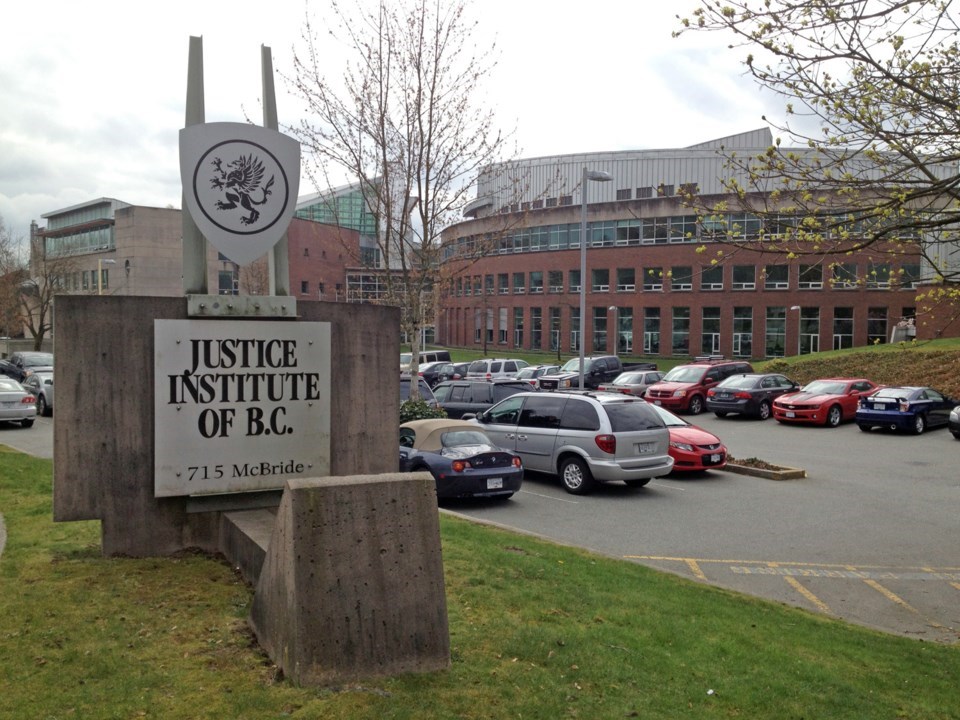The Justice Institute of BC is getting an infusion of cash to help it expand paramedic training programs across the province.
On Thursday afternoon, provincial representatives visited the JIBC’s New Westminster campus to announce the government would be investing about $2 million into expanding paramedic training programs in communities around B.C.
“We know that there is a labour shortage, and nowhere is that more acute than in our health-care system,” said Selina Robinson, minister of post-secondary education and future skills. “British Columbians are looking to government to deliver strong services, and they expect, and rightfully so, when they call 911 a team of paramedics, trained professionals will be dispatched right away.”
According to a press release from the province, the funding will help the primary care paramedic certificate program to be delivered to more than 100 students in New Westminster, Chilliwack, Kelowna, Trail and Victoria. In addition, emergency medical responder training – a pre-requisite for the primary care paramedic certificate program – will be available to approximately 30 participants in Cranbrook, Port Alberni and Prince George.
“None of us none of us ever wants to have to call 911; I think we all know that. But boy are we lucky that we can, and to know that people are going to come and that they're going to take care of you until other help can come on the way,” Robinson said at Thursday’s press conference. “That's absolutely critical.”
According to Robinson, the investment in careers in emergency health care will lead to faster response times for British Columbians when they need help.
Robinson said the province’s Future Ready plan is focused on making education and training more accessible, more affordable and more relevant.
Andrew Mercier, B.C’s minister of state for workforce development, said there are going to be one million job openings in the province in the next eight years.
“One million – and 141,000 of those job openings are in healthcare. It is the most pressing demand in the labour market,” he said. “And not having people to fill those jobs means wait times. Not having a paramedic means you have to wait when you call 911, and that's unacceptable to our government and I think that's unacceptable to British Columbians, which is why this training is so important. Having skilled paramedics is the difference between waiting or not.”
Mercer said there’s an “urgent” need for skills training in B.C., which is why these types of investments are important.
Kathy Harms, director of the JIBC’s health sciences division, said the additional funding has the potential to change so many lives in positive ways.
“This funding has created a significant opportunity for students to answer the call to pursue a career in paramedicine at a critical time for the profession here in B.C.,” she said. “Paramedic students often indicate a high degree of financial need, and the program itself is very intense. That makes the balance of work and school difficult for students to manage. This funding, which will cover all of the student's education expenses, will help alleviate the financial need and allow students to focus more completely on their studies and success in the program.”
Students aren’t the only ones who will benefit from the additional funding to the JIBC, Harms said.
“This funding will prove to have a domino effect, as these future paramedics will ultimately save lives and improve health outcomes for countless others in communities across the province,” she said at the press conference.
The community workforce response grant can be used to pay for skills training, including apprenticeship foundations, short-term, occupational and essential skills training. It can also be used for employment-assistance services (such as resume writing, interview skills, pre-employment counselling and/or coaching, and Indigenous cultural components) and participant financial supports (such as child care, transportation, disability supports and personal protective equipment.)
Kate Peer, a harm-reduction volunteer and a primary-care paramedic student at the JIBC, said the funding is welcomed by herself and other students, as it removes financial barriers and allows them to focus on becoming paramedics.
“We can't thank you enough for helping us do the work that we love,” she said. “My classmates and I, we talked about it, and we feel the responsibility to live up to the expectation. We feel personally responsible towards our community. You're investing in us, you believe in us; that's huge.”




